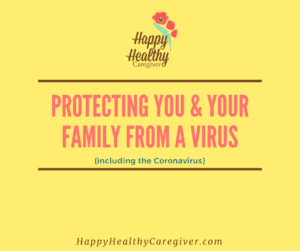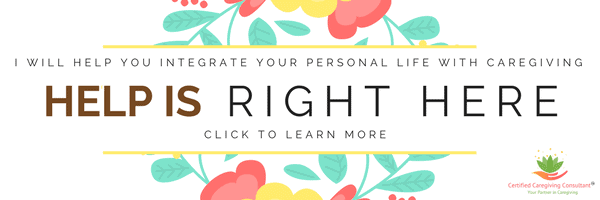The spread of the Coronavirus disease is creating a steady unease. Sadly, a nursing home in Washington state has become the US epicenter of the Coronavirus. From what is known, the virus primarily puts our elderly, very young, and those with weakened immune systems at great risk. However, we all play a part in spreading germs and viruses in our communities.
We can’t turn on the radio and TV without hearing about another location being added to the reported cases list. Recently, conversations about this new potentially deadly virus are hitting closer to home.
Just a few weeks ago, my sister Susie and her two oldest children vacationed in Rome, Italy. Susie even got to experience the holy joy of being blessed by THE POPE in Vatican City!
After returning home from their amazing trip, Italy was added to the list of countries with reported cases of Coronavirus or COVID 19. Susie is the primary caregiver for our 82-year-old mom who is on hospice so she immediately took precautions. According to the Center for Disease Control website, Susie was advised to self-isolate for two weeks. However, in her full-time caregiving situation without any family nearby this was easier said than done! For the first few days back, she hired a professional caregiver to come to the house and care for mom while she quarantined herself to spaces away from mom. She notified all the hospice and care partners that come into the house about her recent trip and situation so they could make an informed decision about coming to the house during the quarantine period.

Susie also educated her children who live a few states away to watch for the Coronavirus symptoms. To help minimize the spread of germs from coughing and sneezing, Susie wore a mask to protect mom and others who come to the house. She had read that masks are more helpful for folks who have been exposed to minimize sneeze particles vs. healthy individuals wearing masks. And, I think we’re all worried that a sprint to the stores for masks means the people who work directly with sick patients will struggle to find them. For this reason, mom didn’t need to wear a mask. Susie also used anti-bacterial cream and watched for any signs of having a temperature. If she did have a temperature, she was asked to call the emergency room first before showing up.
During this two-week watch period, Susie had to take our brother Tom who has a developmental disability to a doctor’s appointment. She called the doctor’s office to let them know about her situation. She was asked to wait in the car while Tom went to the appointment. As caregivers do, Susie pivoted. Tom took a notebook with Susie’s questions for the doctor and asked Tom to get the answers written down. Susie continued to avoid heavily crowded areas for her first two weeks back. When she went to the grocery store or on another errand in public she wore her winter gloves.
Last week at our NW Atlanta Daughterhood Circle (a social support group for family caregivers), the Coronavirus topic came up. Two sisters shared a story about how they had asked their other sister who is an international flight attendant to refrain from visiting their mom. Mom has dementia and lives at home with one of her daughters.
Some other changes and policies as a result of the Coronavirus:
- My little sister who lives in Washington, D.C. recently canceled her family’s first European vacation planned for Italy.
- As a safety precaution, my large employer ‘grounded’ all their employees from any commercial travel for two months and requires all vendor meetings to be over video conference.
- When ordering my Starbucks yesterday, I couldn’t get it in my usual ceramic grande coffee mug. The company was instructed to remove their sustainable in-store mugs and wipe down their surfaces and doors to help protect their customers.
The health and safety of ourselves and our family certainly need to be prioritized while we are trying to minimize the spread of this disease and understand more about this new virus.
Helpful Links for more information about the Coronavirus
World Health Organization COVID-19 Outbreak
Center for Disease Control: Coronavirus Disease in the U.S.
Center for Disease Control: Confirmed COVID-19 Global Map
Strengthen and Boost Your Immunity
The Coronavirus outbreak urges us to dial in on what must be done to protect and boost our own immunity and help influence the health of our immediate family. Here are some behaviors within our control to strengthen our immunity:
- Stay home and rest when you aren’t feeling well (if you must leave the house, wear a facemask).
- Eat foods filled with vitamins and minerals such as these 15 foods said to boost your immune system.
- Get restorative sleep. Per multiple reputable sources, the average adult needs between 7-8 hours a night.
- Moderate or eliminate unhealthy behaviors like smoking.
- Drink plenty of fluids, especially water and green tea.
- Supplement your diet with vitamins suggested to improve your immune system. According to the Cleveland Clinic the best immunity support vitamins are C, B6, and E.
- Stay physically active.
- Keep current with your wellness appointments.
- Have a positive outlook. Per WebMD, individuals who look on the brighter side tend to get sick less!
If you question whether you are getting enough of the good ingredients from natural sources, supplements may help. Some products our family uses include:
Protect Your Immunity
To minimize our risk of getting sick, we can take the below precautionary measures. Share these tips with your children and/or aging parents.
- Distance yourself from people who are sick (CDC does not recommend healthy individuals wear a facemask to protect themselves from respiratory disease)
- Wash your hands for a minimum of 20 seconds, especially before you eat or touch your face. Sing the ABCs to yourself!
- Avoid touching anywhere on your face.
- Clean and disinfect your home and work surfaces regularly.
- Carry your own pen to use to sign receipts and documents in public establishments.
- Wash your smartphone and eyeglasses with soap and water (alcohol may ruin your screens!)
- Wipe your AirPods and earbuds with an alcohol wipe (this will minimize your risk of Swimmer’s Ear as well which Elizabeth’s son Jacob recently got from his AirPods)
Create Your Family Care Plan
Unexpected things do happen. Putting a family care plan in place helps minimize the caregiver stress in life and provide peace of mind.
Here are tips from Caregiving.com to help you put a plan in place.
You can document your Family Care Plan using this free resource. Everyone needs access to the Family Care Plan so leave it with your care recipient. If you need help putting your Family Care Plan together, schedule a complimentary 30-minute coaching session with Certified Caregiving Consultant Elizabeth Miller to help you get started.
Some of the links on this page are affiliate links. When you click on a product and choose to purchase it after seeing it on this site, Happy Healthy Caregiver receives a small thank you from Amazon which helps reimburse us for blogging & site expenses. There is no additional cost to you.




